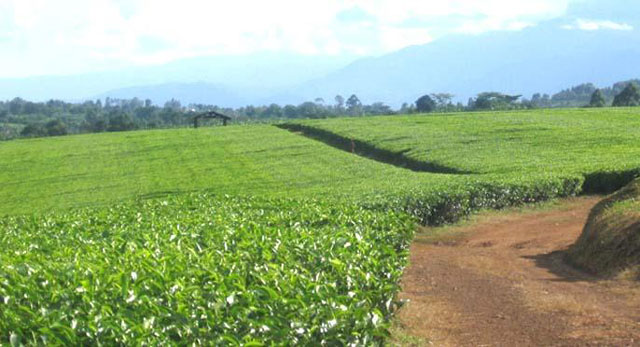
Kampala, Uganda | THE INDEPENDENT | Mabale Growers Tea Factory Limited is a key player in Uganda’s tea sector. Rogers Siima, the company’s general manager spoke to The Independent’s Julius Businge about its operations and the country’s tea sector
What is your general assessment of the tea sector in Uganda at the moment?
The tea sector is booming at the moment with good prices being realised at Mombasa tea market. The Uganda average prices have hit an average of US$2 per kilogram. I notice that there is reduced information and knowledge that is passed onto farmers regarding how to improve output. That has reduced production per unit area. Our tea prices are affected by poor quality leaf. Uganda is still having a challenge of poor plucking methods due to shortage of labour. Government needs to put in place a regulatory body for the tea industry. The industry is expanding at a very fast speed and is attracting new players, thus the need for tight regulation. There is also need to train people in tea growing and processing.
How significant is Mabale Factory in Uganda’s tea sector?
Our factory understands the plight of the farmer in Kyenjojo District. Other factories are only after making money from the farmers’ green leaf. Mabale provides very important services that sustain the farmers’ garden which include extension services, provision of inputs. We also do corporate social responsibility in areas of clean water provision, road repairs and construction of leaf collection centres.

Tea prices have been fluctuating over the past few years; what exactly explains this and how does it affect your operations?
Market dynamics explain the fluctuating nature of tea prices. The prices are normally affected by the forces of demand and supply. In 2014, the tea market collapsed completely due to high production in tea producing countries and limited uptake in the eastern world due to the insecurity then. When that happens, it affects negatively the operations of a company like ours.
What explains the high cost of inputs for tea growing and how are you helping farmers reduce them?
The cost of inputs is scaring as they are all imported into the country. Currently with a dollar that has been going up compared with our local currency, imports into the country have become very expensive to the farmer. Some inputs like fertilizers are not readily available on the market. Sometimes speculators make the product expensive in times of limited supply.
Uganda’s tea is graded poorly at Mombasa Auction due to quality gaps. How are you responding to that?
As a company, we have a quality policy and are certified by Uganda National Bureau of Standards. We are encouraging and sensitising farmers to pluck at short plucking rounds to ensure our quality is not compromised. Ugandans need to feel proud as tea producers and need to tell a good story about it. We need to be like Malawi which has succeeded in this. It has a low altitude compared to Uganda and it exports directly more than 50% of her production. For quality to prevail, farmers generally need to maintain short plucking rounds; fight market speculators who supply green leaf to factories.
Apart from quality issues, what other challenges does the sector face and how are you managing them as a company?
We face challenges of high rates of borrowing and lack of long term financing. Uganda has no functional development bank. Uganda Development Bank has not come to understand the importance of the tea industry as an important pillar for national development. The other challenges have to do with high power tariffs, limited supply of quality inputs and lack of research in the sector that would bring in more dollars into the country. Government needs to do more to revive Rwebitaba Zonal Agricultural Research and Development Institute because the current research at the Institute is not impacting tea farmers.
Ugandans only consume a small amount of tea produced here; the balance is exported and auctioned at Mombasa. What does this mean for the sector?
It means that there is an opportunity to grow local and regional markets. Local branding is a new development with only few companies involved in packaging and selling on the local market. We need to be mindful that tea benefits have not been fully explained to the consumer in Uganda.
What is the outlook like for Uganda’s tea sector?
The sector shall continue to grow with more processing plants coming up. Tea sector players shall continue to compete for the farmers’ leaf due to their expanded processing facilities. The tea prices are likely to remain fair for the next two years.
 The Independent Uganda: You get the Truth we Pay the Price
The Independent Uganda: You get the Truth we Pay the Price


